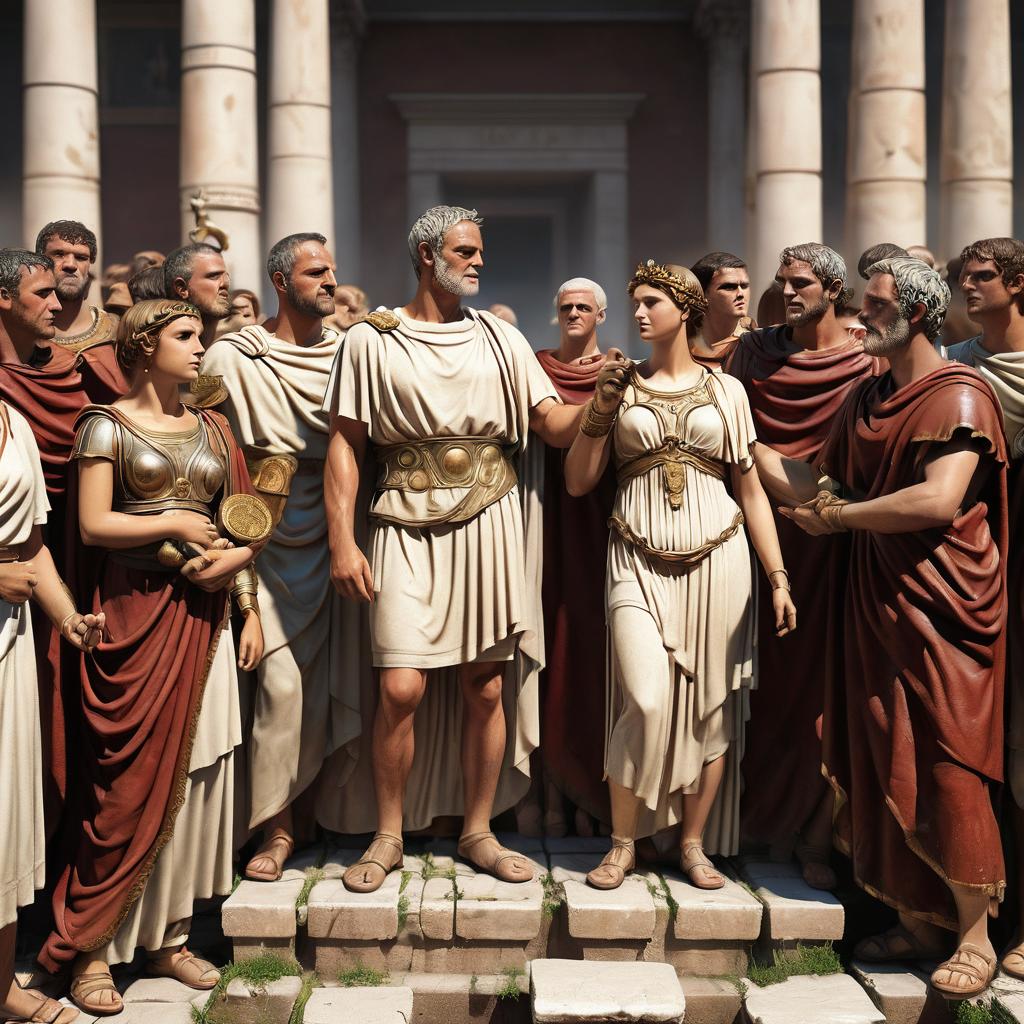Honor: The Foundation of Roman Power

Imagine a world where honor was the bedrock of society, guiding every action, decision, and relationship. Welcome to ancient Rome, where the concept of honor wasn’t just a personal virtue but a societal necessity. The Romans called it “honor” and built an entire way of life around it, ensuring their civilization thrived for centuries. Let’s delve into how honor shaped Rome and what lessons we can take from it today, both in our personal lives and in business.
The Romans had a unique phrase, “Mos Maiorum,” which translates to “the way of the ancestors.” This wasn’t just a catchy slogan but a comprehensive guide to living honorably. The Mos Maiorum encompassed values like courage, duty, loyalty, and respect for tradition. It was a moral compass handed down through generations, ensuring that each Roman upheld the honor of their family, their ancestors, and their city.
In Rome, honor was intertwined with reputation. A good reputation was crucial for social standing and political power. This led Romans to live their lives under the constant scrutiny of their peers, always striving to uphold the highest standards of integrity. Public life was a stage where one’s honor was continuously tested and proven.
Several key virtues defined Roman honor. Trustworthiness, known as “fides,” was about being reliable and keeping one’s word. Romans valued trust highly, knowing that their society’s stability depended on the reliability of its people. Duty, or “pietas,” emphasized duty to family, gods, and country. It was about putting the collective needs above personal desires, fostering a sense of responsibility and selflessness. Gravitas, or seriousness, reflected a dignified approach to life. A Roman was expected to carry themselves with dignity and seriousness, especially in public matters. Virtus, or courage, was more than just bravery in battle; it was about moral courage—the strength to stand up for what was right, even when it was difficult.
So, what can we learn from the Roman obsession with honor? While our society is vastly different, the principles of honor are just as relevant today.
In business, building a reputation for reliability and trust can open doors. Clients and partners prefer to work with those who consistently deliver on their promises. Taking ownership of your work and showing dedication to your team can lead to greater career satisfaction and success. Being the person who goes the extra mile for the common good will not go unnoticed. Carrying yourself with gravitas in business interactions ensures that you are taken seriously. It’s about being respectful, prepared, and composed, no matter the situation.
In personal life, staying true to your values and principles builds a strong personal foundation. Just as Romans maintained their honor, staying consistent in your actions and words earns the respect of those around you. Facing challenges head-on and standing up for what you believe in strengthens your character. It’s about having the moral fortitude to make tough decisions, even when they’re unpopular. Valuing your relationships and honoring commitments to family and friends creates a supportive and fulfilling personal life.
The Romans understood that a society built on honor was a strong, cohesive one. While our world has changed, the essence of what makes an honorable person remains timeless. Embracing the virtues of trustworthiness, duty, integrity, and courage can lead to a fulfilling and respected life, both professionally and personally.
So next time you find yourself in a challenging situation, think of the ancient Romans and their unwavering commitment to honor. Let their legacy inspire you to act with integrity and dignity, ensuring that your own legacy is one of respect and admiration. After all, honor is not just an ancient ideal—it’s a powerful foundation for a successful and meaningful life today.


